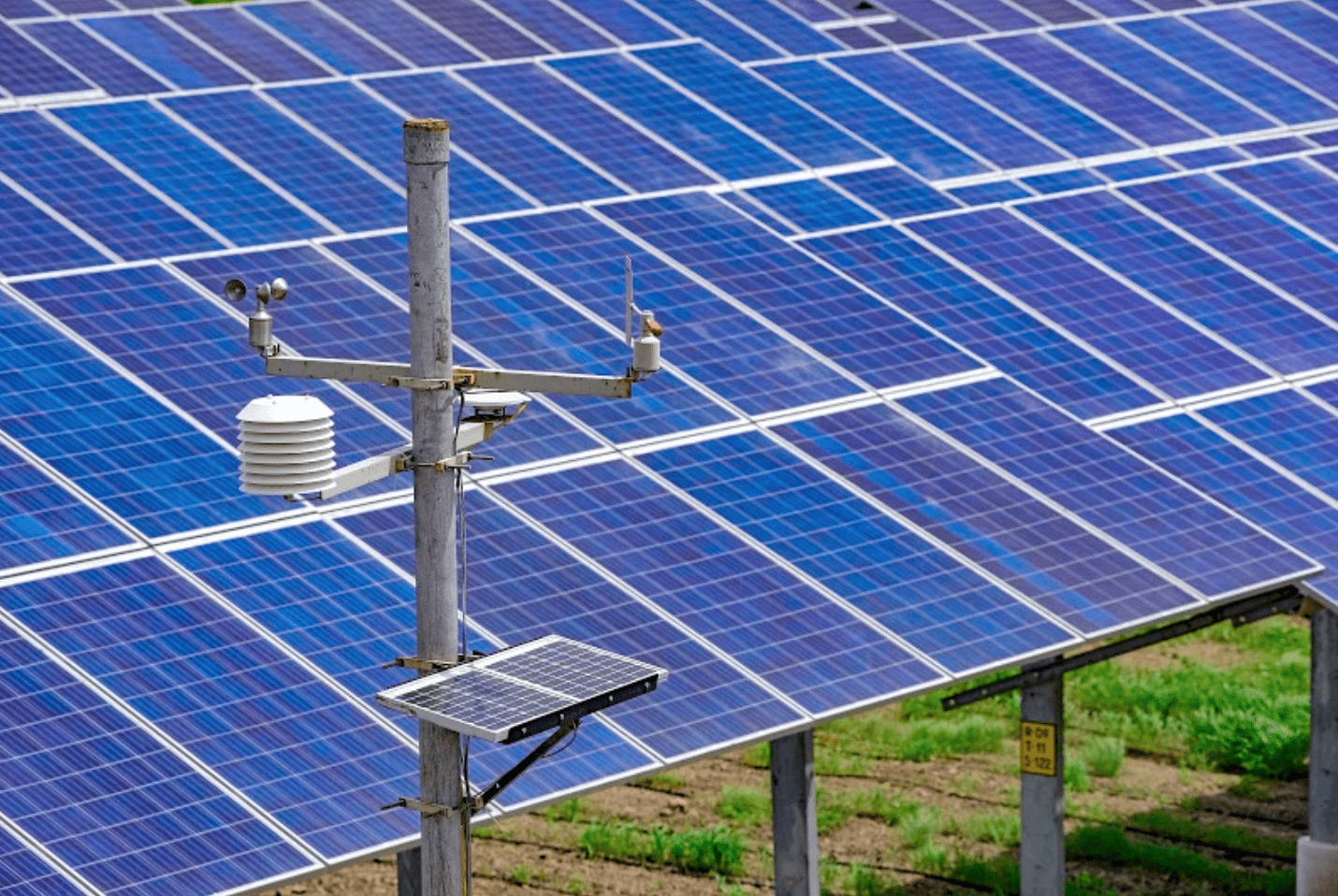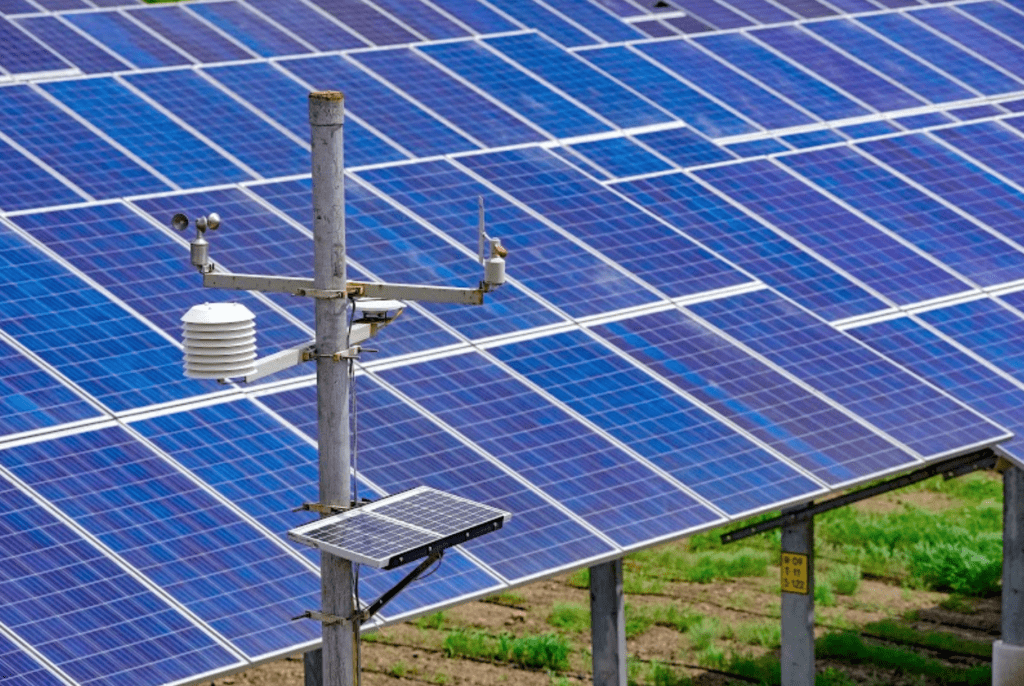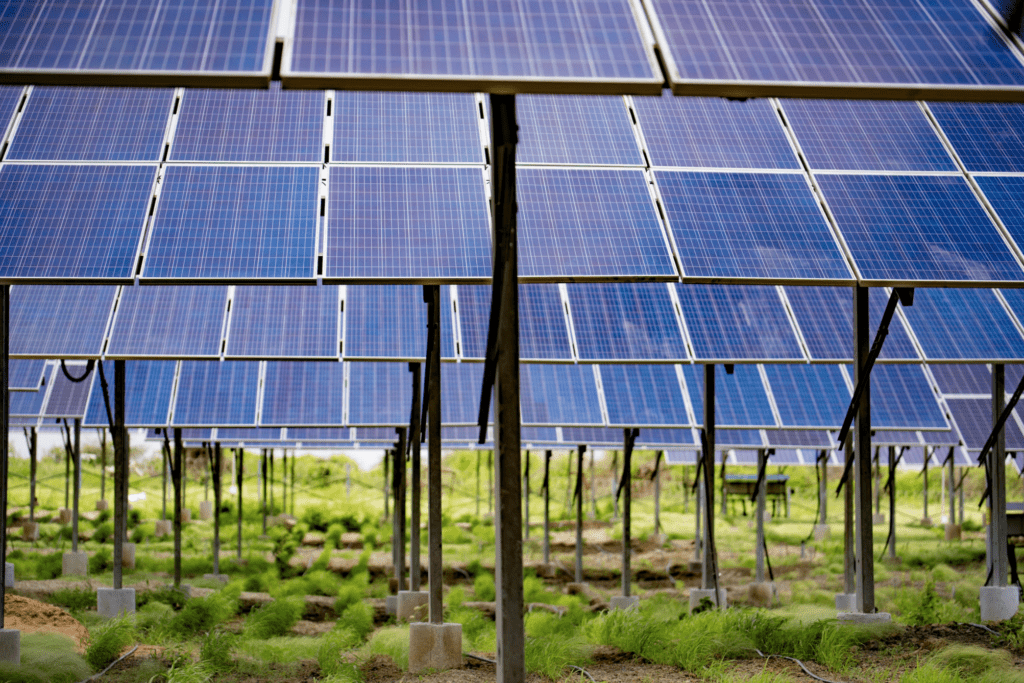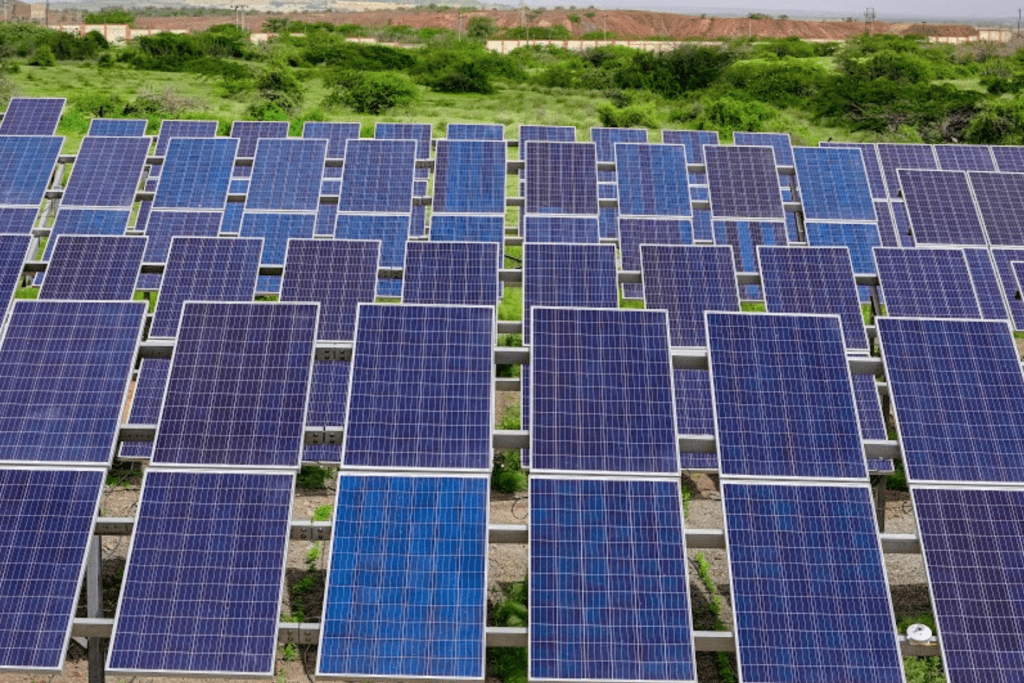
2 MWp Agro PV
Information
Land that is optimal for solar installations is often well suited to growing crops as well. This idea served as the starting point for the pilot project that the Government of Gujarat undertook to test if solar plants and agriculture can co-exist. Since then, two ground-mounted solar projects of 1MW each have been awarded to us and were successfully implemented in Sikka, District Jamnagar and Panandhro, District Kutch.

The project focused on the potential usage of agricultural land for solar power generation and how it could bring about a change in the earnings of farmers with a dual income. A careful study was undertaken by the government to identify the types of crops that can be grown under the solar modules, and the effect that solar modules can have on the crops.
The module mounting structure was designed for seasonal tilt at a height of 3 meters from the ground. Different types of module spacing were incorporated in order to understand the optimum module-to-module spacing that was suitable for the crops.
Crops which grow within the height of 2 meters could be grown and all the seasonal crops that fulfill this criterion could be undertaken. Water used to clean the modules was also used for irrigating the crops beneath, thus optimizing the use of natural resources.
Our studies suggest that an average of 4 – 5 households can benefit from the agricultural produce generated by this type of 1 MW solar plant.



